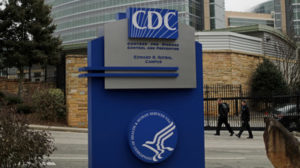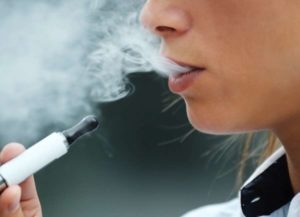Story updated
State public health officials have confirmed five cases of vaping-related lung illnesses in Georgia, with another 10 being investigated.
The CDC said Thursday that nationally, 530 people have experienced lung injuries associated with the use of e-cigarette or vaping products. The CDC said it has analyzed 373 of those cases, and two-thirds of that number are people 18 to 34 years old, and 16 percent are younger than 18 years old.

The CDC has reported six deaths from the vaping-related illnesses, and a seventh was reported this week by public health officials in California, the state’s second fatality.
The Atlanta-based federal health agency has activated emergency operations to expand its probe of the outbreak of lung illnesses connected with e-cigarettes.
Vaping devices mimic cigarettes but produce inhalable vapors instead of smoke. E-cigarettes typically contain nicotine, like that found in tobacco, but some contain THC, the psychoactive ingredient in marijuana. While the devices are marketed as alternatives to actual smoking, health experts say they cause problems of their own.
The CDC is working with the FDA to collect information about recent e-cigarette product use among lung disease patients and to test the substances or chemicals within e-cigarette products used in these cases.

Patients usually have experienced coughing, chest pain or shortness of breath before their health deteriorated to the point that they needed to be hospitalized.
Their various diagnoses have included lipoid pneumonia (which can occur when oil enters the lungs), and acute eosinophilic pneumonia (caused by the buildup of a type of white blood cell in the lungs) and acute respiratory distress syndrome, NPR reported. The latter is a life-threatening condition in which fluid builds up in the lungs and prevents the oxygen that people’s bodies need from circulating in the bloodstream.
The CDC has warned that if people are concerned about these specific health risks, they should consider refraining from using e-cigarette or vaping products.
The outbreak has affected users of both nicotine-containing products and those containing THC. But it is more prevalent among people who report vaping THC than those who say they use only nicotine products, NPR reported.

The nationwide investigation has found no particular vaping devices or products linked to all cases, the Washington Post reported. Investigators are looking into the possibility that people are getting contaminated products, or even counterfeit products, because many victims report having bought marijuana on the street rather than from a store, the Post said.
The CDC suspects “chemical exposure.”
In all confirmed cases, patients reported vaping within 90 days of developing symptoms, and most had vaped within a week of onset of symptoms.
The Trump administration has proposed banning all flavored e-cigarettes.
The New York Times reported that states are rushing to push through bans on e-cigarettes for anyone under 21. Governors are calling for prohibitions on flavors like bubble gum, cotton candy and banana split, which critics say are meant to entice young people into trying vaping. And in some states, lawmakers are contemplating raising taxes on vaping products as a way to discourage their use.

